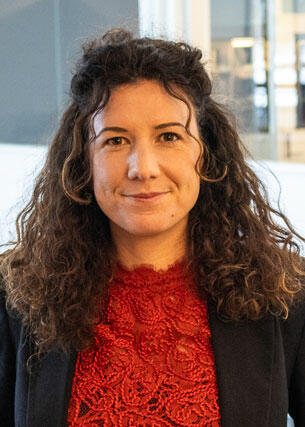 Alessandra Dieudè is defending her thesis for the degree philosophiae doctor (PhD) at the University of South-Eastern Norway.
Alessandra Dieudè is defending her thesis for the degree philosophiae doctor (PhD) at the University of South-Eastern Norway.
- Read the thesis here: USN Open Archive: Private school policy and practice in Norway: Governing private schools: State funding and standardisation
Dieudè has completed the PhD programme in pedagogical resources and learning processes in kindergarten and school. The doctoral work has been carried out at the Faculty of Humanities, Sports, and Educational Science.
Both the trial lecture and the PhD defence are open to the public. Join us on campus or digitally.
Abstract
In recent decades, societal and educational issues have been used to legitimise policies encouraging privatisation worldwide. While in Norway the privatisation of education generates political disagreement due to the historical and social justice ideals embedded in the concept of a common school for all, state-funded private schools are experiencing significant growth. According to previous research, funding occurs in specific and institutional contexts and result from a variety of policy goals; however, the expansion of privately subsidised education seems to contradict with the goal of a common school for all. More knowledge is needed to understand the logic between private schools’ goals, regulatory provisions and local enactment of policy.
This thesis explores the legitimation and regulation of state-funded private schools in Norway and how policies are perceived, interpreted and enacted at different operational levels. Drawing on qualitative data from a multilevel study, I compare negotiations of meanings at the policy level and perceptions of autonomy in (two) state-funded private and (three) public schools. At the school level, there is a particular focus on school actors’ perceptions of autonomy in the enactment of curriculum and assessment regulations. This study draws on governance theory combined with an understanding of policy as a practice of power and a tool for the coordination of actors.
The findings show that at the state level, between 2002–2018, Norwegian national policy legitimised the regulation of state-funded private schools using international references and policy instruments aimed at promoting equity and quality standards. In particular, the 2003 policy changes liberalising private schooling lost legitimacy due to how the centre-left government referenced PISA and Sweden, a country that has a similar private school policy and poor school results, in order to reverse the proposed regulation of private schools. Thus, this study shows that while degrees of liberalisation regarding the regulation of state-funded private school can change according to political governments, the “old” social-democratic ideal of one common school for all can be legitimised by negotiating meaning and evidence from international references and international standardised tests. Furthermore, the emphasis of an outcome-based curriculum instrument legitimises state-funded private school by ensuring more equity and quality of education.
At the school level, despite different contexts and the requirement for differentiation (pedagogical diversification), teachers and school leaders in state-funded private and public schools have similar discretion but face different challenges related to interpreting and enacting policy requirements. However, the discretion in state-funded private schools appears even more restricted by both policy requirements and their own governance. By having to enact state policy and follow a curriculum with outcome-based educational approaches and quality assurance instruments such as continuing professional development (CPD) and national tests, state-funded private schools are increasingly regulated in a way that is similar to public schools, which may lead to stronger standardisation. This makes Norway an interesting case, showing how the state uses policy, such as related to funding, as an effective instrument to produce variety of education while maintaining control over the school system.
However, the emphasis on diversity as key to enhancing the quality of education through increased freedom of pedagogical offer is being challenged. The increased emphasis on standards and the standardisation of education illustrates how Norway’s regulatory framework for state-funded private schools can take forms that both complement and conflict with policy goals. The findings confirm the construction of a common pedagogical base for all schools and contribute to exposing such trends among state-funded private schools rather than creating a basis for diversified educational provision. If every school profile is similar, what happens to the policy related to the creation of alternative schools? This study shows how public and private schools are regulated similarly through various types of policies. When alternative school profiles, which are supposed to provide diversity, have the same basic pedagogical idea, what constitutes the alternative?
